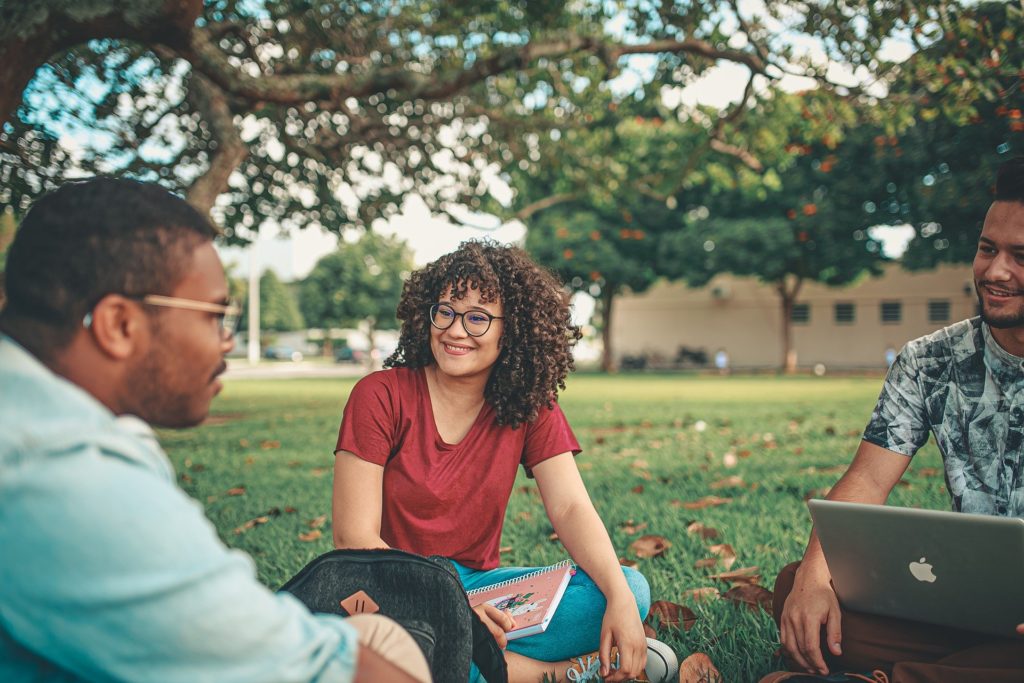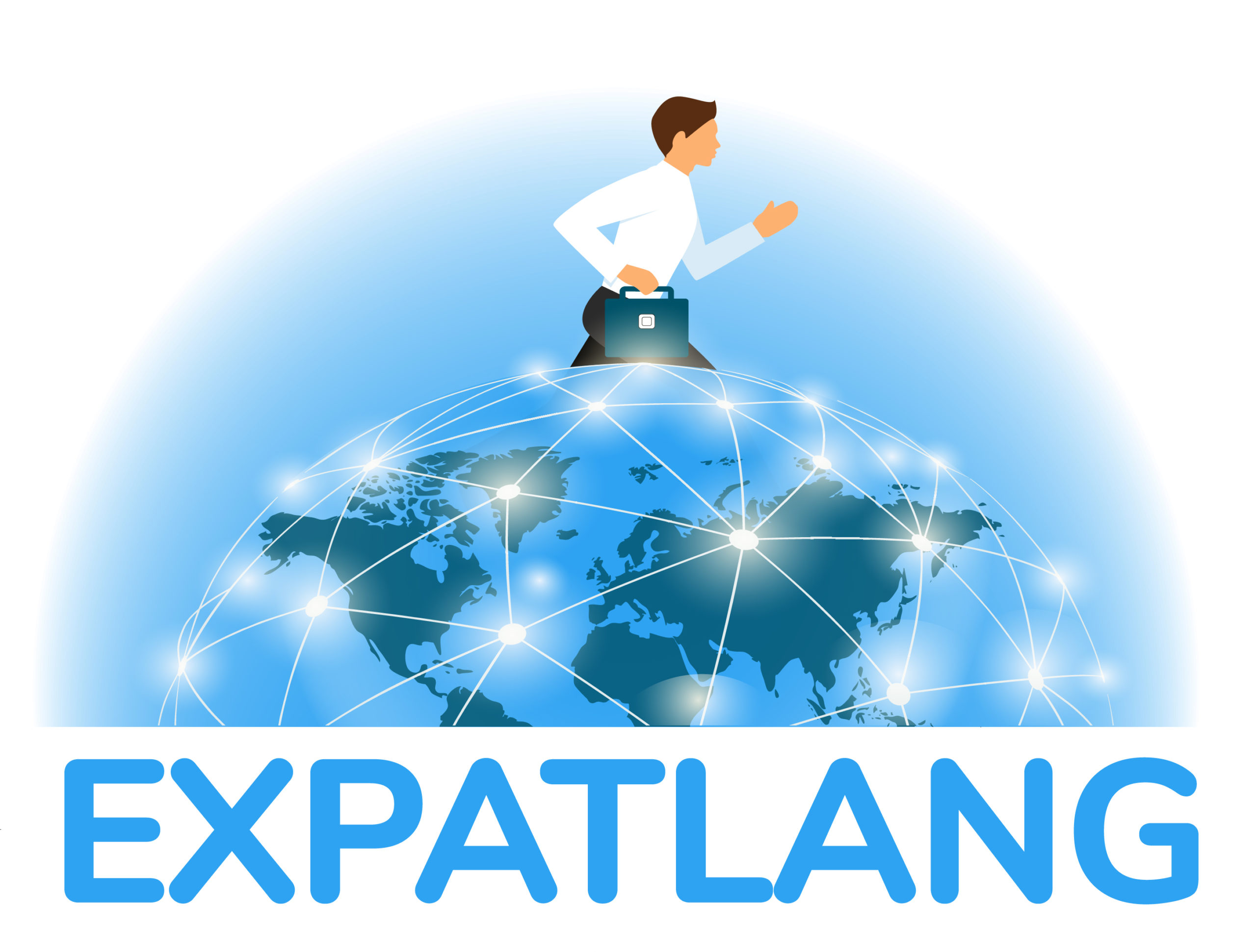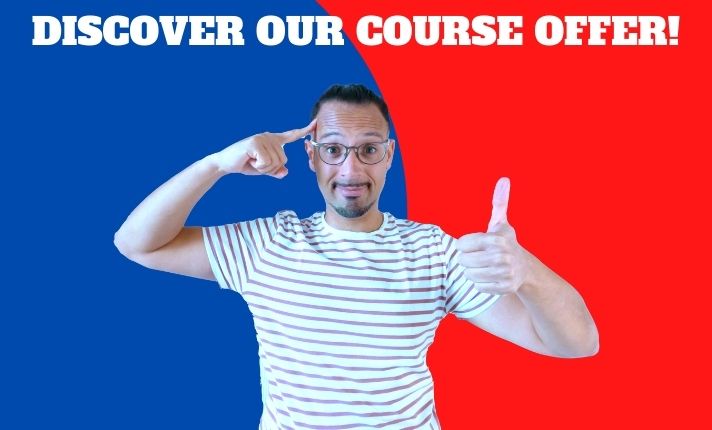
HAVE WE ALL STOPPED LEARNING?
Many people believe that they stopped learning forever right after finishing school or university. But is this true ?
At a personal level, without learning, buying a new house would be a very difficult task to achieve, raising children would turn into a hazardous experience.
At a professional level, without learning, we wouldn’t get better at our jobs, we would see no improvement in our work efficiency and we wouldn’t have any possibility to change jobs.
So how come we can so easily lose track of our learning process? This is simply because, as adults, the way we learn is different. Instead of dedicated learning periods with identified teachers, we learn continuously and unconsciously from all the people around us.
For many of us, going back to the strict context of a formal course with a teacher and grades would be very difficult. That’s because, as adults, we generally prefer to learn from our peers.
However, when we start learning French, this traditional approach is generally the only option we consider. And we often lose motivation when we see we’re not getting the expected results.
In today’s article, I’m going to try and explain how learning with peers can be a great way to boost your French learning experience.
How do we learn in our personal life?
In the private sphere, we all have life expectations and dreams. Even if we we’re not conscious of it, learning is absolutely necessary to achieve them. But the way we learn doesn’t always require the help of a specialist to guide us on the right way.
For example, when we buy our first house, we have to learn many different things – how to choose the perfect location, how to estimate whether a price is correct or not, how to deal with all the paperwork and the legal obligations, how to choose a bank and negotiate the conditions for our loan…
Although in most of these situations we can turn to a specialist, most of the time, their opinion isn’t enough.
In addition to professional advice, we can’t help asking our family and friends to share their opinion as well.
In the end, we simply take all these opinions and advice into account and make an informed choice based on our own analysis of things.
As opposed to children who are eager to learn anything from anyone, we adults don’t really like being told what we should learn and do. Based on our own experience and the collection of experiences we’ve heard from the people around us, we are able to evaluate every situation and decide what works and what doesn’t for ourselves.
It is very different from a strict and formal learning context such as a university course or a professional training. Indeed, in such contexts, we can’t really decide what we’re taught and aren’t always sure that what we’ll get is actually what we’re looking for.
Instead, in real life, we pick up what we need from a wide variety of people and only deepen the aspects that are actually relevant to our needs.
Why should it be otherwise for French? Although you don’t know how to learn French yet, keeping this in mind will be a game changer, whether you’re planning to find out how to learn French by yourself or want to make the most of your French lessons.
How do we learn in our professional life?
Learning in a professional context must take two main facts into account.
First of all, we can’t always choose our own goals. Indeed, most of our professional tasks depend on factors that are beyond our control and desires.
Furthermore, there is generally a higher level of constraint around these tasks – you can’t always be picky and decide whether you want to complete them or not.
The second aspect of professional learning is time.
Many of our tasks demand that we act fast, whether it be to satisfy our clients or to guarantee the completion of a project in due time.
That’s why the learning process in a professional context must generally be faster than in the private sphere.
For example, imagine that you have to develop a very complex type of dashboard to monitor the evolution of a specific project. You may need to develop a new set of skills.
To do this, it’s very unlikely that your first move will be to hire a teacher to help you develop such skills. Instead, you’ll most probably browse the internet first (tutorials, forums, social media…), or ask some of your colleagues or family and friends to share their knowledge and experience.
In none of the situations above are we told what to do. We don’t have one person giving us a ready-made solution. Instead, we decide to ask a veriety of people and investigate among different learning options based on our own needs. We then decide what to keep and what not to.
In this context, we’re very active in the learning process and as we’re time-bound, we try to make a clear distinction between relevant resources and irrelevant resources, and only learn, inside of these resources, the most relevant information.
Here again we can draw parallels with learning French. Indeed, we all have very good reasons to learn French. But most probably, my reasons aren’t the same as yours. That’s why we’ll also have to do this job of people and resource selection to define our very own most effective way to learn French.
Learning from peers is another way to socialise

In addition to this, as human beings, socialising is also an important aspect of our learning journey. The people we seek help from are either people we trust or people we like spending time with.
In the private sphere, we ask our family and friends and we tend to contact them for more than our learning intentions. We also ask a flow questions about how they are, what they’ve been up to, what’s going on in their lives etc. In a nutshell, questions to socialise with them.
In a professional context, although we sometimes have to be more straightforward as per our learning intentions, that doesn’t keep us from socialising.
For example, here in France, it’s very common to have friendly chit-chats with our colleagues during a coffee-break or at lunch time. This gives great opportunities to improve the relationship with them and ultimately to collaborate in a more efficient way for future projects.
These social interactions are extremely important in our lives. They are what makes the learning journey even more enjoyable. Not only do we learn new things and become better at what we do, but we also have a great time doing so on the way.
How is all this helpful when learning French?
This last principle of Malcolm Knowles’ 7 principles of adult education can help you learn French at different levels.
It’ll boost your motivation
If you’re learning French in a formal course, with a teacher and classmates, having a good time with your fellow French learners during the lesson can be a very strong motivation to attend this course regularly.
Indeed, not only will you be learning from the teacher, but you’ll also get to share your experience with the other learners – you’ll share your learning tricks and will take some of the others’ tricks as well.
At the same time, you’ll probably make friends with whom you’ll keep contact and motivate each other to keep learning until the end.
It’ll give you a sense of control
If you only rely on one person to teach you French, you’ll probably have to be more passive. Indeed, you’ll be waiting for the teacher to tell you what to learn and not everything they’ll be teaching you will be useful for you.
However, if you learn how to identify what you should focus on first, same as your learning experience in your private and professional life, you’ll be able to get in touch with a wide variety of people and ask them targeted questions.
There will be a horizontal relationship between you and them – you’ll be communicating as peers and will be considered as a respected autonomous learning adult (which is a position we all enjoy, right?)
Remember. We adult learners like to choose among the learning options based on our own needs and we like to decide what to keep and what not to.
By applying the same logic to French learning, we’ll satisfy this need to be the captains of our lives and will increase our sense of control.
Learning how to speak French fluently is a long-term project and this sense of control will reduce the impression that you’ll never see the end of it.
We’ll decide when we’re satisfied with our achievements.
It’ll make learning French easier
If you’re learning French on your own, you’ll probably get to meet native French speakers. If you talk to them regularly, you’ll have a chance to see how much your French has improved and give meaning to your whole learning journey.
Furthermore, we tend to remember what we can use straight away. If you get to learn French and put it into practice with native speakers, you’ll get a rewarding feeling from this and it’ll probably keep you wanting to take your French skills to the next level.
And you ?
I’d be curious to know about your most recent learning experience with your peers. What did you learn and how ? Tell me everything about it in the comments.
We have now reached the end of our series of articles about how to learn French as an adult in 2022. If you’ve missed any of the articles on this topic, you can click on every single one of them below :
- We learn better when motivation comes from within
- We mainly learn what we believe is necessary for us
- We learn by doing
- We learn to solve problems
- We generally use our own past experience in the learning process
- We learn better in informal situations
As we’ve mentioned before, the best way to learn French is your own way. And if you need help in defining it, Expatlang can help you.
I’ve been working as a language coach for more than 10 years and have helped hundreds of learners reach their goals, whether it be for professional French or learning French for fun.
Please check my course offer to find out more about my services or write me an email at contact@expatlang.com to tell me about your needs. I’ll be thrilled to help you define the most effective strategy to reach your goals.
I’m looking forward to hearing from you and until then salut, et bonne chance avec le français!


Recent Comments